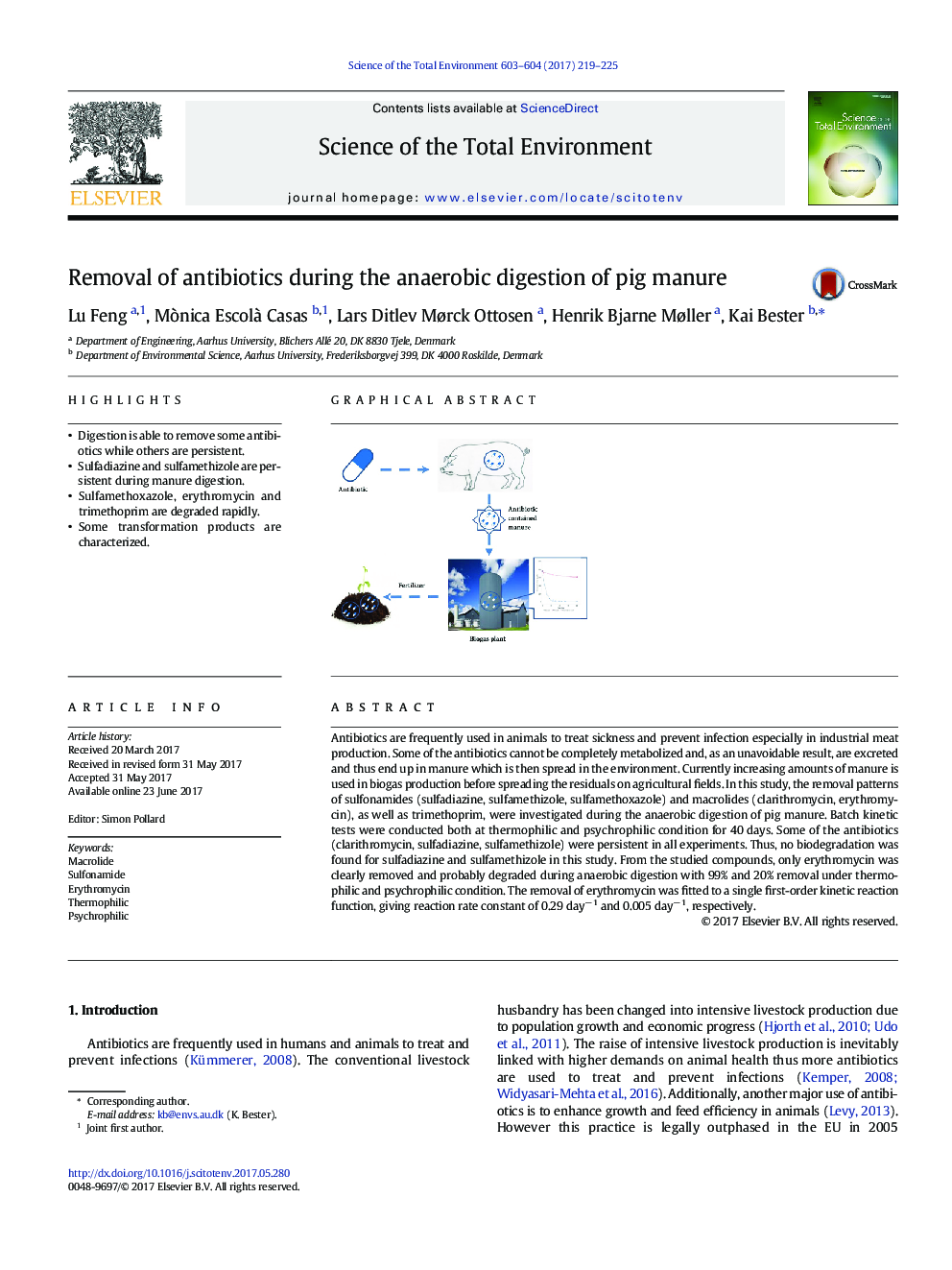| Article ID | Journal | Published Year | Pages | File Type |
|---|---|---|---|---|
| 5750292 | Science of The Total Environment | 2017 | 7 Pages |
â¢Digestion is able to remove some antibiotics while others are persistent.â¢Sulfadiazine and sulfamethizole are persistent during manure digestion.â¢Sulfamethoxazole, erythromycin and trimethoprim are degraded rapidly.â¢Some transformation products are characterized.
Antibiotics are frequently used in animals to treat sickness and prevent infection especially in industrial meat production. Some of the antibiotics cannot be completely metabolized and, as an unavoidable result, are excreted and thus end up in manure which is then spread in the environment. Currently increasing amounts of manure is used in biogas production before spreading the residuals on agricultural fields. In this study, the removal patterns of sulfonamides (sulfadiazine, sulfamethizole, sulfamethoxazole) and macrolides (clarithromycin, erythromycin), as well as trimethoprim, were investigated during the anaerobic digestion of pig manure. Batch kinetic tests were conducted both at thermophilic and psychrophilic condition for 40 days. Some of the antibiotics (clarithromycin, sulfadiazine, sulfamethizole) were persistent in all experiments. Thus, no biodegradation was found for sulfadiazine and sulfamethizole in this study. From the studied compounds, only erythromycin was clearly removed and probably degraded during anaerobic digestion with 99% and 20% removal under thermophilic and psychrophilic condition. The removal of erythromycin was fitted to a single first-order kinetic reaction function, giving reaction rate constant of 0.29 dayâ 1 and 0.005 dayâ 1, respectively.
Graphical abstractDownload high-res image (129KB)Download full-size image
